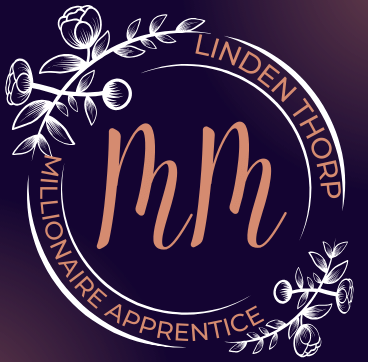
Self-assessment and self-criticism often tread a fine line. While assessing oneself can pave the way for growth, falling into the trap of self-criticism can derail confidence and motivation.
I think of realistic self-assessment as a mirror that shows me what I need to improve without the cloud of negative judgment.
It’s about recognizing when I fall short and understanding why without spiralling into defeatist attitudes.
Negative self-talk, that inner critic that insists on focusing on flaws, can harm my well-being.
It’s a distortion of the self-assessment process where, instead of constructive critique, I find it can sometimes degenerate into a chorus of unwarranted self-condemnation.
This kind of thinking can’t be the norm; it can negatively shape my self-image and hinder personal development. Hence, I try to keep the inner critic from taking centre stage.
I rely on a combination of reflection and feedback to maintain an objective assessment of my abilities. Journaling has become a dear friend, and seeking insights from peers or mentors helps me balance my internal narrative. It’s about taking stock of the areas needing improvement and the strengths I bring to the table.
This holistic view fosters a more realistic understanding of myself, preparing me for more significant successes and fewer disappointments.
Yet, even the most well-intentioned self-assessment can go awry without addressing certain psychological hindrances. One such hindrance is imposter syndrome.
It’s fascinating yet unsettling how this phenomenon can cloud my judgment and skew my perception of achievements, but recognizing it is the first step toward reclaiming confidence.
Confronting Imposter Syndrome: From Doubt to Confidence
Have you ever sat in a meeting surrounded by peers and thought, “I don’t belong here?” These moments might be more common than you think and are often a sign of imposter syndrome.
This phenomenon can make you feel like a fraud as if you’ve merely been lucky rather than deserving of your achievements.
Imposter syndrome isn’t picky; it can affect anyone, regardless of their success or level of expertise. It thrives on cognitive distortions – essentially, misbeliefs about self-worth and competence.
This could manifest as attributing success to external factors like timing while attributing failures to personal shortcomings, creating a skewed and negative self-perception.
But there’s hope.
- You can rewire your thoughts from impostorism to rightful ownership of your success. Start by questioning the evidence behind your self-doubt. Have you been ‘getting lucky’ all this time, or have there been clear indicators of your skill and effort? Recognizing these can help ground your perspective in reality.
- Constructive feedback can also be a powerful antidote. Engage with mentors or peers who can honestly overview your strengths. Sometimes, a perspective from the outside is needed to shatter the illusion of fraudulence.
- Lastly, affirmations and reminders of your competencies can be great tools. Keep a ‘success folder’ – tangible proof of your achievements, be it emails of praise, awards, or a log of successful projects. Whenever doubt creeps in, this folder is your arsenal against the impostor mindset.
Escaping the Poverty Mindset: Shifting Towards Abundance
Consider a mindset that constantly echoes scarcity, a perspective often called the poverty mindset.
This voice in your head insists resources are perennially scarce and opportunities limited. It’s a debilitating view that hinders personal and professional growth and can entrench feelings of helplessness and despair.
The poverty mindset can be pervasive and often rooted in past experiences or environments that emphasise limitations rather than potential. However, I know from experience and the testimonies of others that it’s possible to move beyond this constraining outlook.
Replacing thoughts of scarcity with feelings of abundance is liberating; it facilitates a healthier, more successful approach to life.
You’re wondering how exactly to make this monumental shift?
Start by recognizing patterns of negative thought. Challenge these thoughts by actively seeking evidence of abundance in your life – no matter how small. Cultivate gratitude for what you do have rather than fixating on what you lack.
It’s also beneficial to surround yourself with people with an abundance mindset; let their outlook influence and reshape your own.
When we talk about an abundance mentality, it’s not just about financial wealth. Abundance encompasses joy, love, creativity, and new opportunities. It isn’t a zero-sum game. Others’ successes don’t equate to your failure.
By internally acknowledging that the world is full of opportunities, a person can begin approaching life from an angle of potential, not limitation.
The successful shift from a poverty mindset to an abundance mentality often acts as a preamble for developing a stronger sense of self-compassion, which is the focus of the following section.
Self-compassion reinforces the belief that you’re worthy of success and deserving of the abundance life offers, and it’s critical as you navigate towards self-improvement and personal fulfilment.
The Role of Self-Compassion in Personal Growth
Have you ever found yourself in the depths of self-critique, forgetting to offer the kindness to yourself that you’d readily extend to others?
The journey back to a centred, productive mindset often begins with a single, yet profound, concept: self-compassion.
You may have overlooked self-compassion as a critical ingredient in the recipe for resilience and personal growth. Instead of being an indulgence, it’s actually a vital tool. It’s about recognizing when we’re being too harsh on ourselves and opting for understanding instead of judgment.
Practising self-compassion involves mindfulness. It requires us to be present with our feelings without letting them define us.
When we are mindful of our inner dialogue, we start to discern the difference between constructive self-reflection and destructive self-criticism.
Science backs this up. Research suggests that those who exercise self-compassion bounce back more quickly from setbacks and are more likely to engage in healthy behaviours. It strengthens our relationship with ourselves and, in turn, with others.
Applying self-compassion isn’t just about feeling better in the moment. It sets the stage for realistic personal goal setting, the next crucial step in our self-improvement voyage.
Setting Realistic Goals: A Path to Authentic Achievement
Goal setting is an art. To master it, I must first distinguish between what’s within reach and what stretches too far. You’ve definitely had high hopes before; we all have. But have you set yourself up for success or just wishful thinking?
Ambition is critical. Without it, I wouldn’t push myself to grow to reach new heights. But here’s where it gets tricky: If I’m not careful, my ambition can run wild, leaving me with lofty goals that exist only on paper, not in reality.
It’s not about lowering standards but about setting targets that challenge me yet are achievable.
I must consider the practical side of my aspirations. In my professional life, this could mean aiming for a promotion that’s one step up, not five rungs up the ladder. Personally, it could look like running a full marathon when I’ve successfully run a half.
Now, how do I keep track of my progress?
It’s straightforward—I use these tools:
- a to-do list app (e.g. ClickUp, Todoist, TickTick, Anydo. I recommend Motion, an AI-powered time and project management platform, but my favourite is Wealthy Affiliate, which is the perfect platform. The business Hubs and website monitors tell you daily what you must do to keep ahead of the game. You can read my detailed review here: The Perfect Platform.
- A progress tracker, e.g. Confluence, Asana, Jira or GitLab. Jira is the most popular.
- A good old-fashioned journal or Day Book. These aren’t just about crossing off tasks; they help me visualize my journey and focus on what matters.
It’s also about aligning these goals with who I am – my true nature.
Sometimes, I get swayed by what others do or expect of me, and my authentic self gets lost in the noise. So, I reflect:
Are these goals mine, or am I chasing someone else’s dream?
I have to ground my goals in reality.
They need to factor in where I’ve been, what I’ve achieved, and where I’m headed.
This isn’t just about setting a trajectory; it’s also about ensuring that my ladder is leaning against the right wall.
Aligning Your Journey: From Past Accomplishments to Future Success
Stepping back to see the complete picture of your first-hand life is an enlightening experience. It’s a chronicle of overcoming obstacles, a tale of persistence, and, most significantly, a history of actual achievements.
Acknowledging these accomplishments serves as the unwavering foundation upon which you build the emerging narrative of your life — transitioning you from where you’ve been to where you aim to be.
But what is success if it is not aligned with your deepest intentions and most authentic self?
To find fulfilment, it’s essential to ensure that your triumphs shine as badges of honour and compass points, directing you toward the future that resonates with your authentic aspirations. Success has many definitions, but the most satisfying one aligns with your innate desires.
True, becoming a novice millionaire introduces you to new chapters with their own unique challenges and opportunities. It’s a stark change from what’s familiar, requiring a financial and mental adjustment.
The goals you set, the relationships you nurture, and the impact you desire to create are now in a new light. In this space, what matters most is recognizing the transformative power of the skills and insights you’ve honed. Aligning your past victories with your future endeavours ensures that every step forward is not just about monetary gain but personal evolvement.
As you enter the uncharted waters of wealth and influence, remember the importance of connectivity with your true nature. Let this guide your pursuits. Be kind to yourself when tacking against the winds, and remain patient as the currents of success ebb and flow. Always celebrate the milestones, no matter how small, for they are a testament to harmony between your former self and the new horizons you are courageously navigating.
So here it is – the genuine epilogue, not just a fanciful dream but a tangible, achievable stage in your journey.
You’ve looked backwards with gratitude; now, with resolve and the wisdom of experience, you turn to face the future. Your sails are complete; the compass clearly read — it’s time to move forward, charting a course towards an abundance that’s not only measured in wealth but in personal triumphs, in satisfaction, in a life authentically lived.
Set your eyes on the horizon and sail forward, ever mindful of the profound linkage between yesterday’s victories and tomorrow’s promise.


Want to stay up to date with my latest posts?
Get an email alert as soon as they’re published.

Hi Charley,
I really like your article and the pictures are amazing! I was particularly interested in the part where you talk about the imposter syndrome and how to overcome it. I even checked the other article (Confronting Imposter Syndrome in Leadership and Wealth-Building: the Ultimate Guide) to go deep on the subject.
It is amazing how our minds work. I tend to always see the glass half empty… thanks for your tips on how to overcome this problem I create for myself.
Hi there, Renata. Thanks for this thoughtful and appreciative comment. Images courtesy of AI.
Glad you went deeper, and yes, it is amazing how it works and dominates everything! I’m thrilled that you can start to transform your mindset. Only you can do it but I can plant a few seeds!! You might also benefit from Understanding and Overcoming the Poverty Mindset and Embracing Pain: Avoiding Suffering
Blessings and Transformation!!
Charley
Hi Charley,
Just finished your piece on realistic self-assessment versus self-criticism. It struck a chord with me, especially the part about journaling and seeking feedback to maintain a balanced view of oneself. It’s a refreshing view that I’m eager to incorporate into my daily reflection routine. Have you found any specific journaling prompts particularly effective in fostering this balanced self-assessment without veering into self-criticism? Thank you for your work and for sharing such impactful insights!
Best regards,
Max
Hi Dear, Makhsud. It’s Always a pleasure.
Glad this touched you. Yes, as far as journaling goes, I think it’s great to have a timeline. What was life like before you started this journey, and where will you be in 10 years, etc?
I also add a ‘what to change/adjust’ section to my writing prompts. It’s good to be reactive, change things that are not working or don’t seem right, and appreciate yourself for being reactive and continually refining. But self-compassion is an essential quality when you’re in the Internet limelight!
Blessings and Success.
Linden